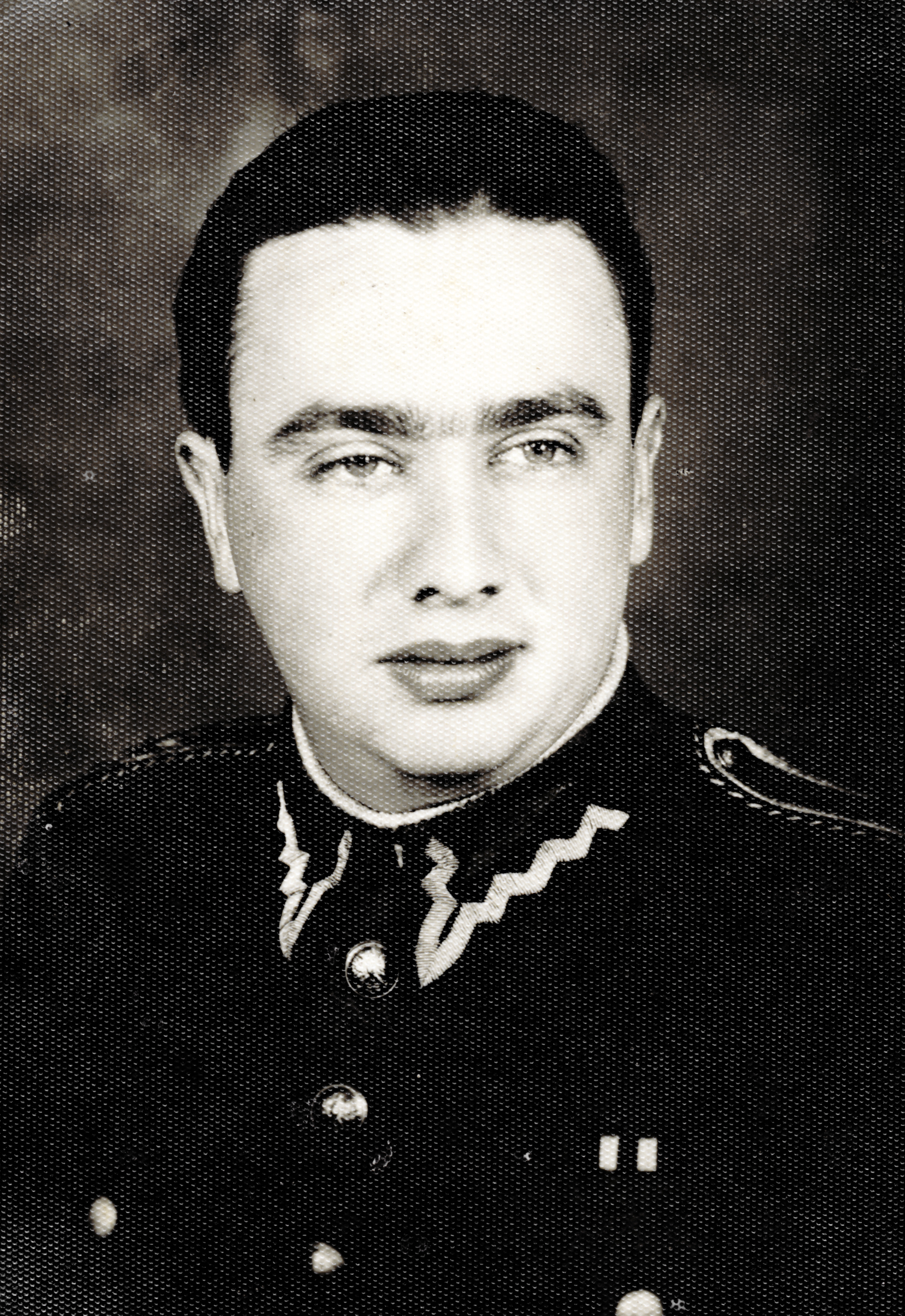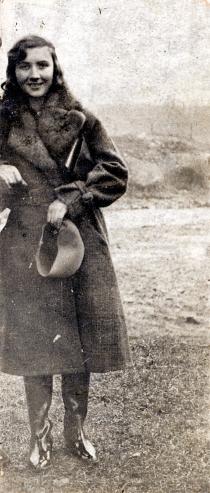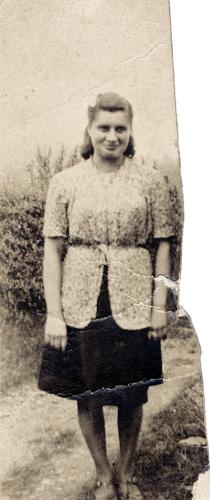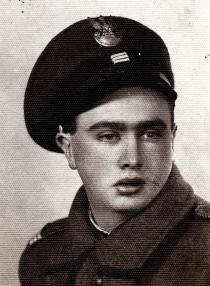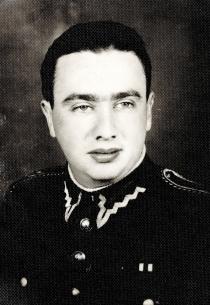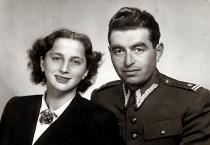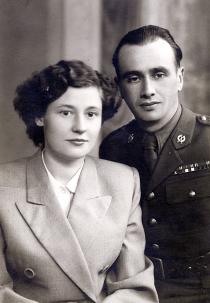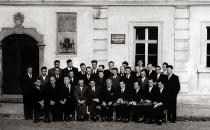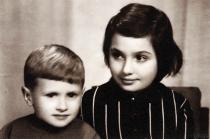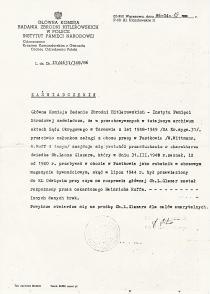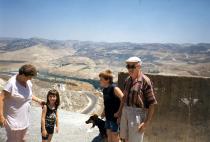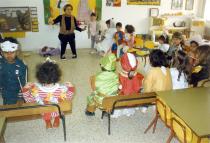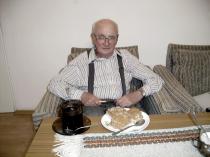This is me in the uniform of the Polish People's Army. The picture was taken in 1946 or 1947 in Luban Slaski, but I can?t remember what for. At that time I didn't know that I would later agree to go professional and stay in the army.
I was the first of my friends to be called up into the army, not long after coming out of the camp, on 21st April 1945, while the war was still on. And I was sent at once to Cracow, to where the Polytechnic is now on Warszawska Street, and where the Second Reserve Infantry Corps was stationed then. How they could take a man who had been in a camp for so many years? 'You're going to war,' this and that - an officer gave us this speech outside the Town Hall. But so what? There was no option. My friends stayed in Bielsko.
On Warszawska Street in Cracow I was in active service. I did normal training, shorter because the war was still on. I also went through an accelerated NCO [non-commissioned officers] course and became a corporal. They needed officers to train recruits - for the front, for the front, for the front. I didn't go to the front, because they needed me to train privates.
I personally wasn't with any other Jews in the platoon or the company; all I know is that our second-in-command for political affairs was a Jew. Rozen, he was called. Other officers were apparently Jews too, who had graduated from that officer training school in Cracow, or before that in Lublin. In Cracow I found out about the Kielce pogrom. I don't remember who I found out from. I was on the Cracow Market Square for the end of the war, 9th May 1945. It wasn't a parade, it was a kind of march. The whole lot of us onto the Square. Without a machine gun, because I didn't have one yet then. And Victory Day was announced on the Square.
In October 1945 we were sent to the Recovered Territories, to the WOP, the Lusatian Brigade of the Borderlands Protection Forces. This big group of people left for Luban Slaski. Well actually first we were sent to Sulikow, 20-something kilometers from Luban, because there were still German POWs in the Luban barracks. We were billeted in various different private homes, German ones. There were still Germans living there, but they had to move out of some of their rooms.
In the army they persuaded me to go professional. This personnel guy, an army man. I didn't want to, but he said to me, 'You were in a camp, surely you wouldn't want a return of those times? Here we're guarding the border, hunting down Germans, and you can see how many of them there are here. Surely you don't want the Nazis to come back here, so work with us.'
I was supposed to complete my compulsory service after two years. Because there was this 'war not-a-war', battles with UPA gangs and the Wehrwolf, in Polish they called them the Werewolves, they kept active service on for an extra year. I had to serve out those three years and only then were they going to release me into the reserves. I didn't want to do that military career, because really after all I'd never planned to be a professional soldier. But because I'd done well, they literally wouldn't leave me in peace. And I agreed - I became a professional soldier.
